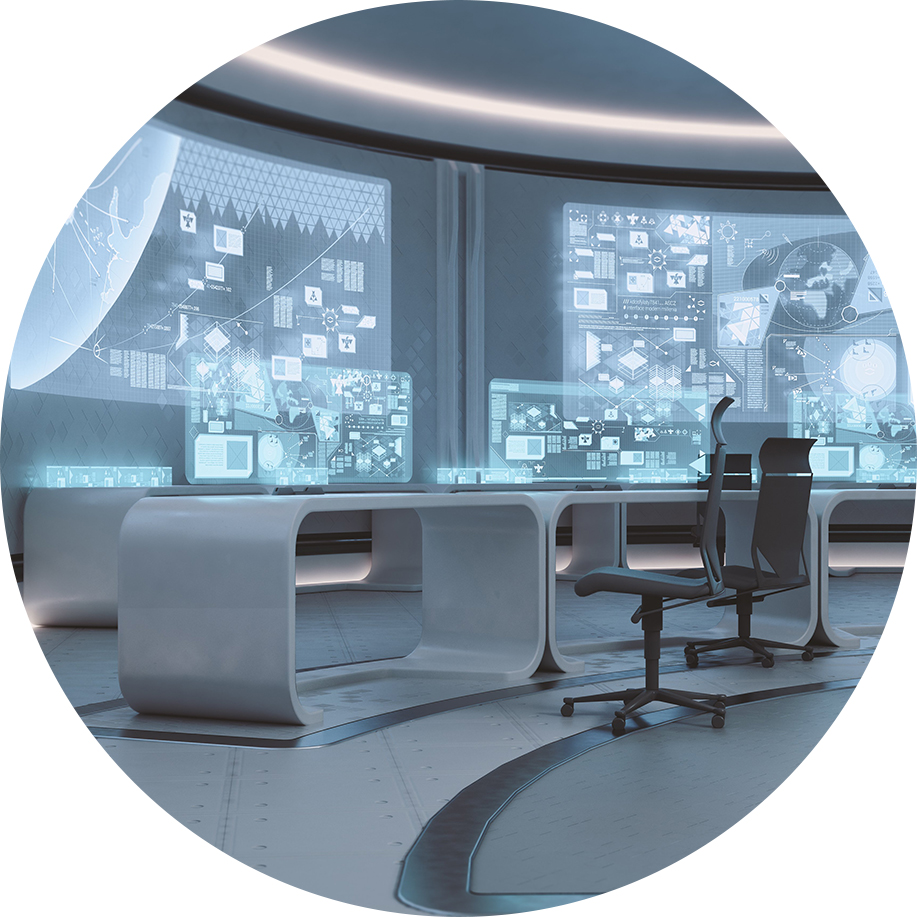The world is evolving at an unprecedented pace, and with it comes a concept that is capturing the imagination of millions: the metaverse. As technology advances and virtual reality becomes more accessible, the metaverse is emerging as a digital realm where individuals can interact, work, and explore in ways that were previously unimaginable. Its popularity is skyrocketing, and its impact on various industries, including business, is undeniable.
Within this digital dimension, a new frontier of opportunities for enterprises is also emerging. Metaverse enterprise solutions have the potential to revolutionize the way businesses operate, collaborate, and connect with their customers. This transformative technology is not merely a trend or a passing fad; it represents a fundamental shift in the way we perceive and engage with the digital world. In this article, we will delve into the potential of metaverse enterprise solutions and explore the profound changes a metaverse development company can bring to any business ready for innovation.
How Do Metaverse Solutions Help Enterprises?

To understand how metaverse solutions can benefit enterprises, we must first grasp the concept of the metaverse itself. So, the metaverse is a virtual reality space that encompasses a combination of augmented reality, virtual reality, and the internet. It is a fully immersive and interactive environment where users can engage with digital content, socialize, conduct business, and much more.
Enterprise metaverse solutions, in turn, refer to the applications and platforms specifically designed to meet the needs of businesses within the metaverse. These solutions enable companies to establish a virtual presence, create immersive experiences for their employees and customers, as well as enhance collaboration and communication within their organizations.
The benefits of adopting enterprise metaverse solutions are manyfold. Firstly, they offer companies the opportunity to extend their reach beyond physical boundaries, allowing them to connect with a global audience. By establishing a virtual presence, businesses can engage with customers, partners, and employees in a more immersive and personalized manner. This can lead to enhanced customer experiences, increased brand loyalty, and improved employee productivity.
Furthermore, metaverse solutions enable enterprises to create virtual environments for training, simulations, and product showcases. With the power of virtual reality, employees can undergo realistic training experiences, reducing the cost and risks associated with physical training. Companies can also showcase their products and services in engaging and interactive ways, providing customers with an immersive preview and driving sales.
Metaverse solutions foster collaboration and teamwork by providing virtual meeting spaces and shared work environments. Employees from different locations can come together in a virtual office, collaborating on projects, sharing ideas, and growing a sense of camaraderie. This can improve efficiency, reduce travel costs, and enable organizations to tap into a global talent pool.

Critical Considerations for Implementing Enterprise Metaverse Solutions
The introduction of metaverse solutions to an enterprise requires careful consideration of various factors to ensure a smooth and successful integration. Based on our experience, we have gathered and described the main considerations that businesses need to keep in mind when starting their journey into the world of the enterprise metaverse.
Technological Requirements and Infrastructure
One crucial consideration is assessing the technological requirements and infrastructure. The metaverse relies on advanced technology to reveal its true potential and deliver value. Enterprises need to evaluate their existing technological capabilities and determine if any upgrades or investments are necessary.
This includes assessing the computing power, network capabilities, and compatibility of devices within the organization. Robust hardware, high-speed internet connectivity, and suitable devices are essential to support the demands of the metaverse to guarantee a seamless user experience. By ensuring the right technological foundations, enterprises can lay the groundwork for successful implementation and maximize the benefits of metaverse solutions.
Integration with Existing Enterprise Systems
It is no wonder that enterprises already have established systems and software in place to manage various aspects of their operations. It is important to ensure that the metaverse solutions can seamlessly integrate with these existing systems to avoid disruptions and maximize efficiency.
This integration involves assessing the compatibility of the metaverse platform with the organization's software, databases, and communication tools. It may require developing custom APIs or connectors to facilitate data exchange and communication between systems. The goal is to enable a smooth flow of information and ensure that data remains consistent and up-to-date across all platforms.
Successful integration enables metaverse solutions to leverage the organization's existing infrastructure, processes, and data, making it easier for employees to adopt the new technology and reducing the learning curve. Moreover, integration allows for streamlined workflows, improved collaboration, and better decision-making by providing a holistic view of data from different sources within the metaverse environment.
Security and Privacy
Security and privacy concerns are paramount when implementing metaverse solutions in an enterprise context. As businesses immerse themselves in the metaverse and handle sensitive data, it is crucial to implement robust security measures to protect against potential cyber threats and safeguard confidential information.
Organizations must ensure that appropriate encryption, access controls, and authentication protocols are in place to secure the metaverse environment. Regular security audits should be conducted to identify vulnerabilities and mitigate risks. Compliance with data privacy regulations, such as GDPR or CCPA, should also be a top priority to protect user privacy within the metaverse.
Privacy concerns arise due to the immersive nature of the metaverse. Organizations should establish clear guidelines and policies regarding the collection, storage, and usage of user data within the metaverse environment. Transparent communication with users regarding data handling practices and obtaining informed consent is essential to maintain trust and compliance.
User Adoption and Change Management
Introducing a new technology like the metaverse may require a cultural shift and a change in how employees work and interact. Executives should carefully manage and communicate these processes instead of leaving them to chance.
Organizations need to provide comprehensive training programs and resources to familiarize employees with the metaverse environment, its features, and its benefits. It is essential to address any concerns or resistance to change by actively involving employees in the adoption process and maintaining open communication channels.
Change management strategies should focus on creating awareness, building enthusiasm, and encouraging participation from employees. This may include showcasing success stories, providing ongoing support, and recognizing and rewarding early adopters. Clear communication about the benefits of metaverse solutions will help employees understand how the purpose of technology will enhance their work and improve collaboration.
The Best Examples of Metaverse Enterprise Solutions

Enterprises across various industries are embracing metaverse solutions and experiencing transformative changes in their operations. Let's explore some notable metaverse use cases within different business environments.
The metaverse became a go-to tool in the manufacturing environment, and this popularity surge resulted in Industrial Metaverse. Different manufacturers implement metaverse solutions to enhance their design and prototyping process. By creating virtual environments, engineers and designers can collaborate in real-time, visualizing and refining product designs in a fully immersive 3D space. This can significantly accelerate the product development cycle, reduce costs associated with physical prototyping, and enable more efficient communication and decision-making among team members.
In the entertainment industry, movie studios can use the metaverse to revolutionize film production and marketing. Filmmakers can immerse themselves in virtual sets and visualize scenes before production begins. This enables more precise planning, and reduced costs. Studios can also leverage the metaverse for interactive marketing campaigns, allowing audiences to engage with movie characters.
The retail sector has also seen significant adoption of metaverse solutions. Some have already created virtual stores within the metaverse, enabling customers to explore a virtual shopping environment, and make purchases using virtual or real-world currency.. This shopping experience has expanded the retailer's reach to a global audience and provided customers with an interactive way to engage with the brand.
For the healthcare industry, the metaverse is a powerful game-changer that is able to power up remote patient care and medical training. Through virtual reality, doctors can conduct virtual consultations, remotely monitor patients, and provide personalized care from a distance. Additionally, medical professionals can undergo virtual training simulations to improve their skills and expertise without the need for physical resources.
Trying to understand the metaverse? Consult with Program-Ace’s top tech experts.
Challenges and Future Outlook of Metaverse Enterprise Solutions Development
As metaverse enterprise solutions continue to evolve and gain traction, several challenges need to be addressed for their further development and adoption. The metaverse projects we have delivered highlighted for us the main challenges that businesses face and showed the direction where the enterprise metaverse landscape is heading.
1. Potential Roadblocks
While enterprise metaverse solutions hold great promise, there are potential roadblocks that can impede their development. One significant challenge is the technical complexity and infrastructure development required to support the metaverse. Building the necessary hardware, network capabilities, and compatible devices can be costly and time-consuming, especially for smaller organizations with limited resources.
The interoperability and standardization of metaverse platforms also pose challenges, as different systems may not seamlessly communicate and share data. Achieving interoperability and establishing industry-wide standards are crucial for the widespread adoption and integration of metaverse solutions.
At the same time, issues such as privacy, data security, and intellectual property rights in the metaverse raise concerns that require careful attention and regulation. Ensuring user privacy and protecting sensitive data within the metaverse environment are essential to build trust and mitigate risks. Clear guidelines and ethical frameworks need to be established to address these challenges and ensure the responsible use of metaverse enterprise solutions.
Overall, while the challenges are present, the future outlook for metaverse enterprise solutions is promising. As technology advances, costs decrease, and infrastructure improves, more businesses will be able to adopt and benefit from metaverse solutions. Interoperability standards are likely to evolve, enabling seamless integration and collaboration across different platforms.
2. Emerging Trends and Developments in Metaverse Technologies
Metaverse technologies are continuously upgrading, bringing forth emerging trends and developments that are crucial for enterprises. One significant trend is the advancement of virtual reality (VR) and augmented reality (AR) technologies, which enhance the immersive experiences within the metaverse. As VR and AR devices become more accessible and affordable, businesses can expect to leverage these technologies for various applications, including virtual meetings, training simulations, and product showcases.
Another important development is the integration of artificial intelligence (AI) within the metaverse. AI-powered virtual assistants and chatbots can enhance user interactions, providing personalized recommendations and support. Machine learning algorithms can analyze user behavior and preferences, allowing businesses to deliver targeted content and experiences within the metaverse.
We also ought to mention the blockchain technology that also turns into an essential part of the metaverse. Blockchain provides a decentralized and transparent framework for transactions, ownership verification, and secure digital asset management. This technology can enable secure virtual transactions, facilitate digital asset ownership, and support the growth of virtual economies within the metaverse.
3. Predictions for the Future of Metaverse Enterprise Solutions
The future of metaverse enterprise solutions is bright, with several predictions shaping their development. One prediction is the increased integration of metaverse solutions with Internet of Things (IoT) devices, enabling seamless connectivity and interactions between the physical and virtual worlds. This integration can revolutionize industries such as smart homes, healthcare, and logistics, where IoT devices can interact with the metaverse to provide real-time data and insights.
Another prediction is the rise of metaverse marketplaces, where businesses and individuals can create, buy, sell, and trade virtual assets, services, and experiences. These marketplaces can foster a vibrant metaverse economy, allowing businesses to monetize their virtual offerings and individuals to participate in a thriving digital ecosystem.
Advancements in haptic feedback and sensory technologies will enhance the sensory immersion within the metaverse, enabling users to experience touch, texture, and even smell in virtual environments. This can revolutionize industries such as gaming, healthcare, and education, where sensory feedback plays a crucial role in user experiences.
Launching Metaverse Office for Enhanced Remote Collaboration

Explore Program-Ace MetaOffice, a PC and VR workspace for presentations and collaboration, that offers a user-centric design, avatar customization, and real-time editing tools. The platform accommodates 32 users and will be soon updated with a ChatGPT-powered AI assistant.
Build Your Custom Metaverse Enterprise Solution with Program-Ace
To leverage the full potential of the metaverse, businesses can benefit from partnering with a reliable custom software development company like Program-Ace. With our expertise in metaverse development and extensive experience in creating immersive and innovative solutions, we can assist businesses in building their custom metaverse enterprise solutions.
The metaverse is a rapidly evolving landscape, and embracing it is not just a trend but a strategic imperative for businesses seeking to thrive in the digital age. By partnering with Program-Ace, organizations can position themselves at the forefront of this transformative technology and unlock a world of immersive, connected experiences that will propel their business into the future. Feel free to contact us and explore our metaverse services with the help of our managers!























